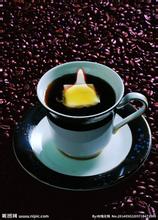A brief introduction to the Origin, Development, History and Culture of Kilimanjaro Fine Coffee beans with soft acidity

The areas with double bee rainfall include the provinces around the Lake Victoria basin, the northeast highlands, the coastal and inland northeastern. The bimodal rainfall area is characterized by two rainy seasons. The short rainy season occurs from September to December. The total rainfall can reach 200-500 mm. The long rainy season occurs from March to May, and the rainfall reaches 300-600 mm. The areas outside the double bee distribution rainfall area belong to the single bee distribution rainfall area. The rainfall time is from November to April, and the rainfall is up to 500-1000 mm.
Produced in the Mohi district near Mount Kilimanjaro, the mountain area with a height of 3,000 to 6,000 feet is the best place to grow coffee, where fertile volcanic ash gives the coffee a strong texture and soft acidity. It exudes delicate aromas and contains aromas of wine and fruit, making people taste endless aftertaste. After drinking Kilimanjaro coffee, I always feel a soft and mellow earthy smell around my mouth. Coffee gourmets often use words such as "wild" or "wild" to describe it. It can be said that pure Kilimanjaro coffee is "the most African coffee".
Kilimanjaro AA is the highest grade of beans, its grains are full, pure flavor, rich and refreshing, all aspects of quality are good. It is usually more acidic than Kenya coffee and evenly stimulates the taste buds in the middle and sides of the back of the tongue, feeling a bit like the sour taste of tomato or soda. The main coffee producing area of Tanzania is located at the foot of Mount Kilimanjaro, which is rich in volcanic soil, and some of the coffee trees planted here are more than 100 years old. the earliest coffee was first introduced by Christians from Kenya and coffee trees must be carefully taken care of, weeded and fertilized. Moreover, old branches must be cut off so that new branches can grow to maintain the quality of coffee beans. Coffee bean processing plants are well equipped; coffee beans are an important economic crop in Tanzania, and the local government attaches great importance to this industry: raw beans are unbaked beans, which contain 11.5% fat; 11.5% moisture; 28.6% crude fiber; 4.0% minerals; 6.2% tannin. Caffeine 1.3%; essence 17.0%; sugar 8.1%; protein 11.8%.
Baked beans: baked beans containing 13.0% fat; 1.5% caffeine; 29.5% crude fiber; 2.6% moisture; 5.0% minerals; 4.2% tannic acid; 29.4% essence; 2.0% sugar; 12.8% protein Tanzania Tanzania
It is the country that put coffee into the national emblem. Kilimanjaro once became one of the most economically powerful areas in Tanzania because of the cultivation of coffee. In recent years, due to the deterioration of the coffee industry in Tanzania, the economic situation of the region has changed. Tanzanian coffee has a crisp characteristic, the taste is similar to the fragrant and elegant Chinese and American coffee, less acidic than Kenyan coffee, Tanzanian coffee has long been loved by Europeans, among the ranks of famous products. Europeans give Tanzanian coffee the nickname "coffee gentleman", and Chinese coffee connoisseurs call it the "coffee swordsman" with the mocha of the "King of Coffee" and the "Lady of Coffee".
Mount Kilimanjaro in Tanzania is 5895 meters above sea level and connected to Mount Meru. It is the main production base of Kilimanjaro coffee. Mount Kilimanjaro is the highest peak on the African continent and the only snowy peak on the earth located on the equatorial line. It is "the roof of Africa" and "Snow White on the equator". The rich volcanic ash gives the coffee here a strong texture and soft acidity, with the characteristics of typical African coffee beans. Kilimanjaro AA is the highest grade of beans with high quality in all aspects. Medium or more moderate after baking has a strong aroma. Suitable for use as a single product or iced coffee
Tanzania covers an area of 945087 square kilometers, of which Zanzibar is 2657 square kilometers. It consists of the mainland, Zanzibar and more than 20 small islands. Located in eastern Africa and south of the equator, the continent is bounded by the Indian Ocean to the east, Zambia, Malawi and Mozambique to the south, Rwanda, Burundi and the Democratic Republic of the Congo to the west, and Kenya and Uganda to the north. The 840 km long coastline of the mainland can be divided into bimodal distribution and unimodal distribution. The areas with double bee rainfall include the provinces around the Lake Victoria basin, the northeast highlands, the coastal and inland northeastern. The bimodal rainfall area is characterized by two rainy seasons. The short rainy season occurs from September to December. The total rainfall can reach 200-500 mm. The long rainy season occurs from March to May, and the rainfall reaches 300-600 mm. The areas outside the double bee distribution rainfall area are all single bee distribution rainfall areas. the rainfall is 500-1000 mm from November to April. Lake Victoria is comparable to the main gold producing areas of Australia, Canada, South Africa and Zimbabwe in geology and scale, with proven reserves of 18 million ounces and estimated reserves of up to 30 million ounces
Kilimanjaro coffee is mainly suitable for blending, can be self-blending or made into a variety of fancy coffee.
Single product production:
Brewing: to brew a good cup of coffee, you need not only fresh coffee powder and slightly harder water, but also a set of easy-to-use brewing tools. There are three main types of coffee machines in common use.
Drip filter: wet the coffee powder with water and let the coffee liquid flow through the filter cloth or filter paper and flow into the container at the speed of natural fall. Basically, this method does not soak the coffee powder, just let the hot water pass slowly through the coffee powder. Both the drip cup and the electric coffee maker fall into this category and are the simplest brewing tools that can make clean and brightly colored coffee.
Bubble type: put the coffee powder into the pot, soak it in hot water for several minutes, and then filter out the coffee grounds by a filter cloth or screen to form a cup of coffee liquid.
Siphon pots, drip pots, Belgian coffee pots and Vietnamese coffee pots are all follicular brewing tools, and they all have a soaking process to form a more complex taste.
High-pressure type: use pressurized hot water to penetrate the compacted coffee powder to produce a thick cup of coffee in this form of tools such as a mocha pot and an espresso machine.
Quick brewing method: can use Italian espresso machine, faster coffee brewing method. The espresso machine can extract several cups of coffee successively. The oil and gum in the coffee beans can be emulsified and dissolved under high pressure during the brewing process, and the essence of the beans is completely extracted by pressure, making the brewed coffee stronger, better in taste and flavor.
Mixed preparation:
First: choose good quality coffee beans, because the use of poor quality coffee beans, of course, will greatly damage the flavor of coffee, even if the production of a very balanced single coffee, but also can not make delicious coffee, the choice of good quality coffee beans is the biggest point.
Second: get rid of defective beans, mixed with defective beans, the taste will become worse. Therefore, it is better to be missing than rotten to get rid of the defective beans without stinginess. For example, long worms with holes, abnormal development, shell without benevolence, will be picked out.
Third: understand the characteristics of coffee beans, if the individual characteristics of the coffee beans to be blended are not well understood, it is difficult to mix good or desired coffee, such as mocha coffee is more sour, it can not be used to dilute the sour taste of coffee.
Fourth: understand the different degree of roasting, different coffee beans are roasted differently, their flavor is also different, so we should have a good grasp, such as Kilimanjaro, Blue Mountain is generally medium-shallow baking, carbon roasting is deep baking and so on.
Making fancy coffee: there are many kinds of fancy coffee. Take Japanese cappuccino as an example.
First, make Kilimanjaro coffee beans into hot coffee.
2. Pour hot water into the coffee cup, warm the coffee cup with 20ml for 30 seconds, then wipe dry.
3. Put the fine sugar in the coffee cup. Pour in the hot coffee without stirring.
4. Cover the surface of the coffee with whipped cream from the edge of the cup to the center of the cup in a spiral way. make a spiral pattern.
5. Sprinkle cinnamon powder and lemon peel crumbs and serve.
In early 2010, there was a new trend of political reconciliation in Sangdao, and the Revolutionary Party and the Public RUF reached an agreement on the formation of a Sangdao unity government. In July of the same year, the Sang referendum adopted a resolution on the establishment of a national unity government. In November, the general election was held smoothly, and the Sang Island established a national unity government. The president, the second vice president and 11 ministers came from the Revolutionary Party. Sang's first vice president and eight ministers came from the RUF Tanzania covering an area of 945087 square kilometers, of which Zanzibar was 2657 square kilometers. It consists of the mainland, Zanzibar and more than 20 small islands. Located in eastern Africa and south of the equator, the continent is bounded by the Indian Ocean to the east, Zambia, Malawi and Mozambique to the south, Rwanda, Burundi and the Democratic Republic of the Congo to the west, and Kenya and Uganda to the north. The 840 km long coastline of the mainland can be divided into bimodal distribution and unimodal distribution.
Important Notice :
前街咖啡 FrontStreet Coffee has moved to new addredd:
FrontStreet Coffee Address: 315,Donghua East Road,GuangZhou
Tel:020 38364473
- Prev

A brief introduction to the smooth and gentle Kilimanjaro boutique coffee bean flavor, taste and aroma
Kilimanjaro AA is the highest grade of beans, its grains are full, pure flavor, rich and refreshing, all aspects of quality are good. It is usually more acidic than Kenya coffee and evenly stimulates the taste buds in the middle and sides of the back of the tongue, feeling a bit like the sour taste of tomato or soda. After moderate or more moderate roasting, it has a strong aroma, the main coffee production in Tanzania.
- Next

A brief introduction to the Market Price of Kilimanjaro Fine Coffee Bean varieties with Woody aroma
In early 2010, there was a new trend of political reconciliation in Sangdao, and the Revolutionary Party and the Public RUF reached an agreement on the formation of a Sangdao unity government. In July of the same year, the Sang referendum passed a resolution on establishing a government system of national unity. In November, the general election of Sang was held smoothly, and the government of national unity was established on Sangdao. President Sang, the second vice president and 11 ministers came from the Revolutionary Party. Sang's first vice president and 8.
Related
- Detailed explanation of Jadeite planting Land in Panamanian Jadeite Manor introduction to the grading system of Jadeite competitive bidding, Red bid, Green bid and Rose Summer
- Story of Coffee planting in Brenka region of Costa Rica Stonehenge Manor anaerobic heavy honey treatment of flavor mouth
- What's on the barrel of Blue Mountain Coffee beans?
- Can American coffee also pull flowers? How to use hot American style to pull out a good-looking pattern?
- Can you make a cold extract with coffee beans? What is the right proportion for cold-extracted coffee formula?
- Indonesian PWN Gold Mandrine Coffee Origin Features Flavor How to Chong? Mandolin coffee is American.
- A brief introduction to the flavor characteristics of Brazilian yellow bourbon coffee beans
- What is the effect of different water quality on the flavor of cold-extracted coffee? What kind of water is best for brewing coffee?
- Why do you think of Rose Summer whenever you mention Panamanian coffee?
- Introduction to the characteristics of authentic blue mountain coffee bean producing areas? What is the CIB Coffee Authority in Jamaica?

